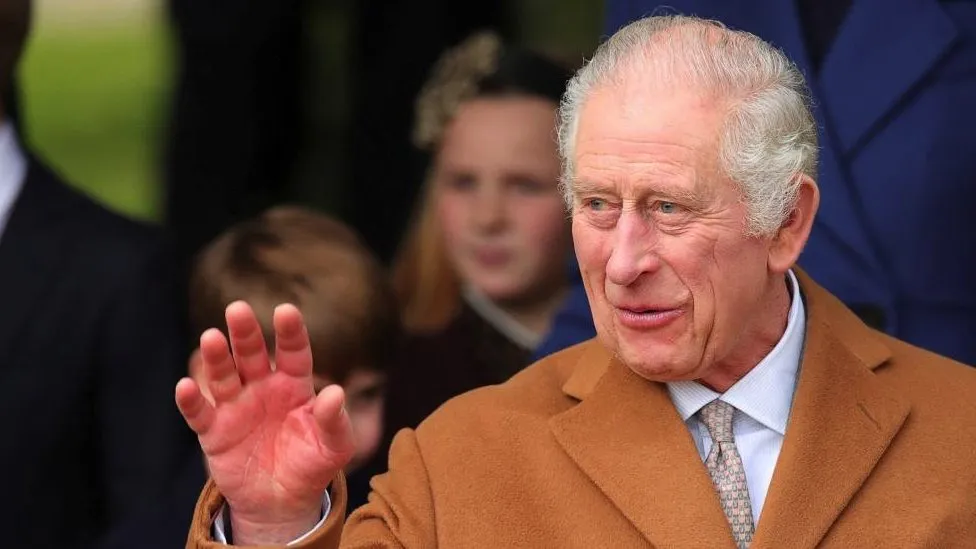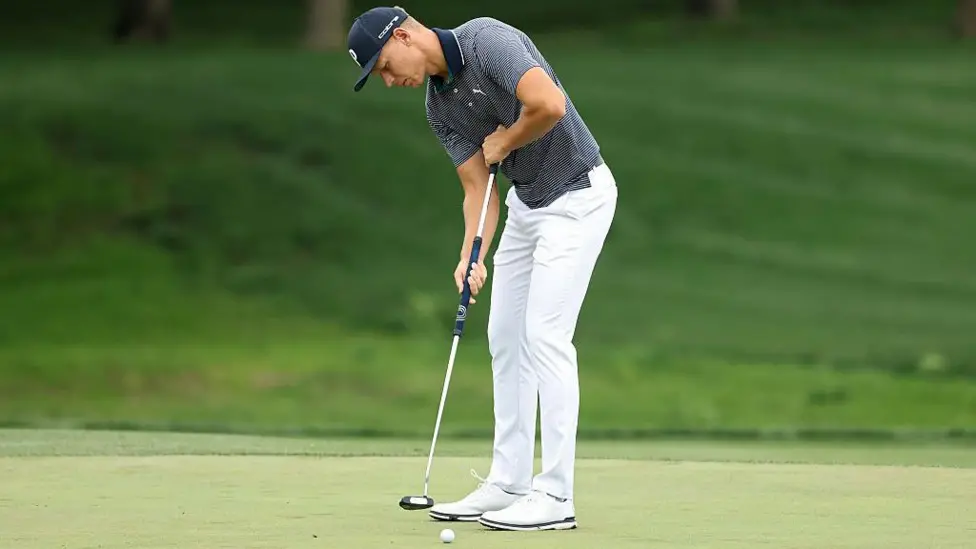What do we know about King Charles' cancer diagnosis?
King Charles has been diagnosed with a form of cancer, Buckingham Palace says.

It was discovered during his recent treatment for an enlarged prostate. The King has started treatment and has been advised to postpone public-facing duties.
What kind of cancer does the King have?
The Palace has not revealed what kind of cancer the King has, or where he is receiving treatment.
It said he began a "schedule of regular treatments" on Monday.
In a statement, it said: "No further details are being shared at this stage, except to confirm that His Majesty does not have prostate cancer."
Is it linked to his treatment for prostate enlargement?
The King, who is 75, was recently treated for benign prostate enlargement.
He spent three nights at the London Clinic private hospital, after undergoing a "corrective procedure".
Following the treatment, the Palace said the King would postpone his public engagements "to allow for a period of private recuperation".
A "separate issue of concern" was identified during his treatment and was subsequently diagnosed as a form of cancer.
He will now receive treatment for that second condition, as an outpatient.
What is cancer?
Cancer occurs when cells in a specific part of the body divide in an uncontrolled way.
These cells can spread to other tissues in the body, including organs, which is known as secondary or metastatic cancer.
How do you diagnose cancer?
Usually doctors will start by asking questions about your symptoms. They can do some tests and examinations too.
That could include blood tests and X-rays or other scans. Sometimes they take a small tissue sample, called a biopsy, to run checks on in the lab.
Occasionally, as is the case for the King, cancer is found when people are going for medical checks for other things.
Cancer may also be diagnosed by tests prompted by screening.
The UK offers screening for breast, bowel and cervical cancer. Cancer screening looks for early signs of cancer in people without symptoms. Other tests then confirm the diagnosis.
How many people get cancer?
In the UK, one in two people develop some kind of cancer during their lifetime.
There are more than 200 different types of cancer - the most common ones in the UK are breast, lung, prostate and bowel, according to the NHS UK website.
Each cancer is diagnosed and treated in a particular way.
Anyone can develop cancer, but the risk goes up the older we become because there's more time for cell damage to build up.
Most cases of cancer are in people aged 50 and over. In the UK, a third of all cases are in people aged 75 and over.
What are the main treatments for cancer?
There are lots of different ways to treat or manage cancer. Much depends on the type of cancer and where it is.
Some cancers can be removed by surgery, while chemotherapy drugs can be given into a vein or taken as tablets to kill cancerous cells.
Radiotherapy is another option that is sometimes offered. It uses high energy rays to attack the cancer.
Not all treatments can cure, however.
What are the different stages of cancer?
Staging is a way doctors describe how big the cancer is and how far it has spread, which can help with deciding the best treatment.
There are different systems or ways used by doctors.
For example, staging can use numbers, where one refers to a small cancer that has not spread, compared to four, which means it is advanced and spreading around the body.
First stage: This is the early stage when the cancer is small and hasn't spread from the organ it started in.
Second stage: When it is confined to one area, which usually means the cancer has increased in size but has not spread into surrounding tissues - sometimes it means cancer cells have spread into nearby lymph nodes.
Third stage: This is when the cancer is larger and may have spread to surrounding tissues.
Fourth stage: When the cancer has spread from where it started into another body organ, such as the liver or lung.
How many people recover from cancer?
The chances of someone surviving cancer have significantly improved over the last 50 years, but the rate of improvement has slowed.
According to Cancer Research UK, half of people diagnosed with cancer survive their disease for 10 years or more.
Cancer survival is usually higher in people diagnosed when they are under 40.
However, survival with breast, bowel and prostate cancers are highest in middle age.
What should you do if you think you have cancer?
If you notice something that isn't normal for you, see a doctor.
That might include:
-unexplained bleeding or pain
-an unusual lump or swelling
-unexplained tiredness and weight loss
-a persistent cough
The symptoms you are experiencing may not be cancer, but it is important to get checked.
Finding cancer early can often make it easier to treat.
How can you lower your risk of cancer?
Not all cancers are preventable - we can't choose the genes we inherit, or change the age we are.
But there are some steps we can all take to reduce the risk of some cancers:
-don't smoke
-keep to a healthy weight
-eat and drink healthily by cutting down on processed and red meat, high-calorie food and alcohol
-be active and take regular exercise
-protect your skin in the sun
-bbc







